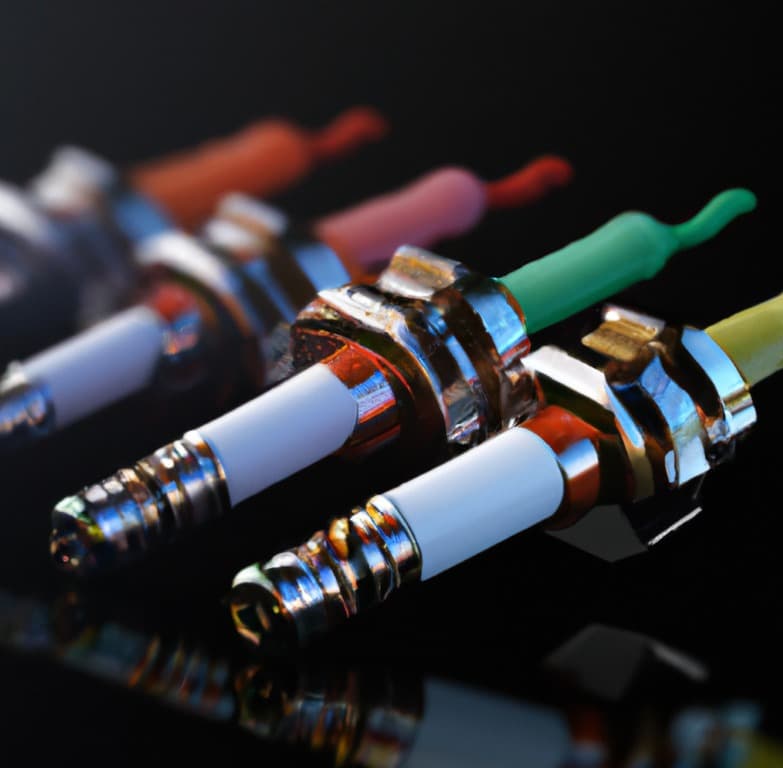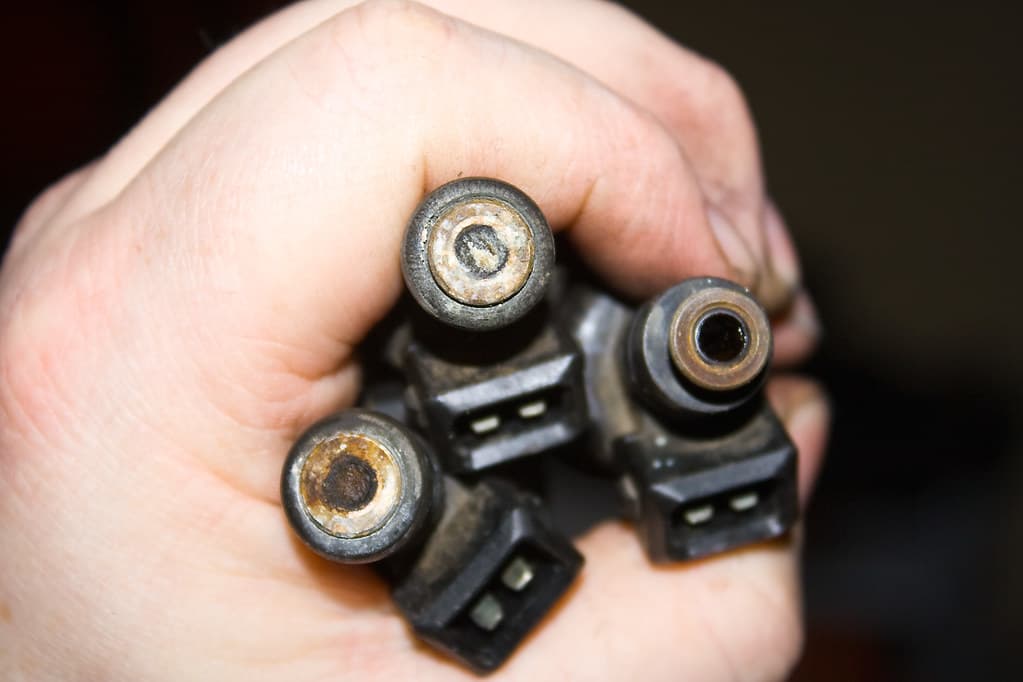Table of Contents
- Introduction
- What are fuel injectors?
- Are fuel injectors different for gas and diesel cars?
- What are Injection Cleaners?
- Benefits of Using Injection Cleaners
- Can a Fuel Injector Cleaner Cause Problems?
- Are there differences between diesel and gas car injectors?
- Other Potential Problems with cleaning your injectors
- Diagnosing Issues After Use
- Identifying the Right Product
- Cost Considerations
- Conclusion: Worth the Risk?
Home » Problems after using injection cleaning products in cars
Introduction
We will go over the problems that can arise after using injection cleaning products in cars. Injection cleaning products are used to improve the performance of a car’s engine and reduce emissions. They are designed to reduce the buildup of dirt, oil, and fuel contamination in the fuel system. However, there have been reports of negative side effects after using these products that should be considered before performing this procedure.
We will discuss common concerns such as potential damage or clogging of injectors, reduced overall performance due to incomplete cleaning, and other related topics. And just for fun we will go over what fuel injectors are, what they do, and pretty much everything you’ll need to know about them and keeping your car going without issues.
What are fuel injectors?
First things first, let’s figure out what we are talking bout before we get onto the issues that can occur with them and cleaning options. Fuel injectors are components found in the fuel delivery system of most modern internal combustion engines, including those in cars. They are responsible for injecting the fuel into the engine’s combustion chamber, which is mixed with air and ignited to generate power.
In general, fuel injectors use pressurized fuel from the fuel pump to atomize the fuel and spray it into the engine’s combustion chamber through a small nozzle. The amount of fuel that is injected is controlled by the engine’s computer, which can adjust the timing and duration of the injection based on various factors such as the engine speed and load.
Are fuel injectors different for gas and diesel cars?
Fuel injectors are used in both gasoline and diesel engines, although the injectors in these two types of engines can be slightly different. For example, diesel injectors typically have to withstand higher pressures and are typically larger than gasoline injectors due to the higher compression ratio of diesel engines. Additionally, diesel fuel is typically denser and more viscous than gasoline, which can also require different injector designs.
What are Injection Cleaners?
Injection cleaners are an essential part of car maintenance. They can help keep your engine running efficiently and prevent costly repairs in the future. However, certain risks are associated with injection cleaners, such as damage to sensitive parts or decreased performance. This article will discuss the potential problems arising after using these products in cars.
Injection cleaning products can be very effective when used correctly, but they do come with some risks. If not used properly, they may cause damage to sensitive parts like fuel injectors or spark plugs. In addition, if too much cleaner is used, it could decrease the engine’s power output due to clogged-up passages. Other potential issues include increased emissions or poor fuel economy due to inefficient combustion caused by dirty components inside the engine.
Benefits of Using Injection Cleaners
Injection cleaners are a great way to maintain your car and keep it running properly. They help to clean out carbon deposits, lubricate the engine components, and improve fuel economy. However, if used incorrectly or too often, some problems can arise from using injection cleaners in cars.
These products are designed to remove dirt and other deposits from your fuel injector system, which helps improve overall engine performance. These products also work at lubricating various engine components, so they operate more efficiently. With regular use of an injection cleaner, you can expect better gas mileage, improved throttle response, and less exhaust smoke. It is important to note that these products should only be used in moderation as overuse can lead to clogged injectors with poor performance or even damage internal parts of the engine permanently.
Can a Fuel Injector Cleaner Cause Problems?
Fuel injector cleaners are a popular product that many car owners use to improve their vehicle’s performance and fuel efficiency. But can using these products cause problems?
Fuel injectors are designed to spray a precise amount of fuel into your car’s engine for optimal combustion. If the spray pattern becomes clogged with dirt or deposits, it can result in inefficient burning and reduced performance. Using fuel injector cleaner is one way to remove buildup from your system and restore its effectiveness, but this process isn’t without risks. In some cases, aggressive cleaning agents might damage delicate parts inside your engine as they work to break up stubborn deposits. So what could go wrong?
First issue – not compatible with your car
One potential issue is that if the cleaning product is not used properly, it can damage the fuel system or cause other problems. For example, if the product is not compatible with the materials used in your fuel system, it can cause corrosion or other damage. Additionally, if the product is not used according to the manufacturer’s instructions, it could potentially cause problems such as clogging the fuel injectors or damaging the fuel pump.
Second issue – not a good enough cleaning
Another potential issue is that the cleaning product may not effectively remove all the deposits from the fuel system. This can result in the build-up of deposits continuing to cause problems, even after the cleaning product has been used.
The third issue – it doesn’t fix the actual issue
Finally, it is important to note that using a fuel injection cleaning product does not guarantee that your vehicle’s fuel system will be completely free of problems. It is always a good idea to have your vehicle regularly maintained and inspected by a mechanic to ensure that all of the systems are functioning properly.
Are there differences between diesel and gas car injectors?
Fuel injectors are used in both gasoline and diesel engines, although the injectors in these two types of engines can be slightly different. For example, diesel injectors typically have to withstand higher pressures and are typically larger than gasoline injectors due to the higher compression ratio of diesel engines. Additionally, diesel fuel is typically denser and more viscous than gasoline, which can also require different injector designs.

Other Potential Problems with cleaning your injectors
The most common issue with injection cleaning products is that they can damage certain components of an engine if used excessively. If there’s insufficient fluid injected into the system, particles may not properly flush away and can eventually clog filters or cause other issues. Additionally, using these chemicals without proper training or knowledge could lead to incorrect dosages and damaging parts like spark plugs and pistons.
Diagnosing Issues After Use
When it comes to diagnosing issues after using injection cleaning products in cars, it can be a tricky task. For many car owners, figuring out what went wrong is often daunting and difficult. To make sure any problems with your vehicle are quickly identified and handled properly, you need first to know what signs to look out for.
One common symptom of an issue caused by injection cleaning product use is decreased power or acceleration. Other indications may include rough idling, misfiring cylinders, higher fuel consumption levels or a decrease in engine performance overall. Suppose any of these symptoms are present after using an injection cleaning product. In that case, a qualified mechanic should have your car inspected immediately to identify and rectify the problem as soon as possible.
Identifying the Right Product
When it comes to keeping your car running smoothly, and in top condition, there is no substitute for using the right product. Injection cleaning products can effectively remove carbon deposits from your car engine, but if you don’t choose the right one, you could face some problems. It’s important to take the time to identify which injection cleaning product is best suited for your car.
To ensure that you choose the correct product, consider consulting your mechanic or an automobile specialist about what type of injection cleaner will work well for your specific make and model of car. Researching online reviews can also help you make an informed decision and give you peace of mind when selecting a suitable cleaner.
Cost Considerations
Cost Consideration is an important factor in automotive repair or maintenance. Injection cleaning products are no exception, as they can often be expensive and may not help solve all of the problems you’re experiencing with your car. Considering the potential costs of using injection cleaning products before taking the plunge is important.
First, there is the cost of purchasing a quality injection cleaning product. You’ll want something safe for your vehicle and powerful enough to do a thorough job of removing dirt, debris, and deposits from fuel injectors and other engine components. Make sure you research reputable brands with proven results to get the most bang for your buck.
Conclusion: Worth the Risk?
Injection cleaning products are often advertised as a cost-effective way to maintain and repair your car’s fuel system. But while they may be helpful in some cases, using them can also introduce various problems that can affect the performance and longevity of your vehicle. After weighing the risks and benefits, one must consider if these products are worth the risk for their particular situation.
The most common problem with injection cleaners is that they can cause clogged fuel injectors or damage other components within the engine. This could decrease overall power output and cause stalling problems when accelerating or attempting to drive at higher speeds. In addition, it is always possible to introduce additional contaminants into your car’s fuel system, which could further degrade its performance over time.
So, sadly, like most of our things related to quick fixes, we would suggest talking to your mechanic and going with their trusted path when it comes to keeping your car running smoothly. These quick fixes aren’t needed if you keep up with regular car maintenance, so try your best to stay on top of scheduled fixes, and hopefully, you never need to use these types of products.


